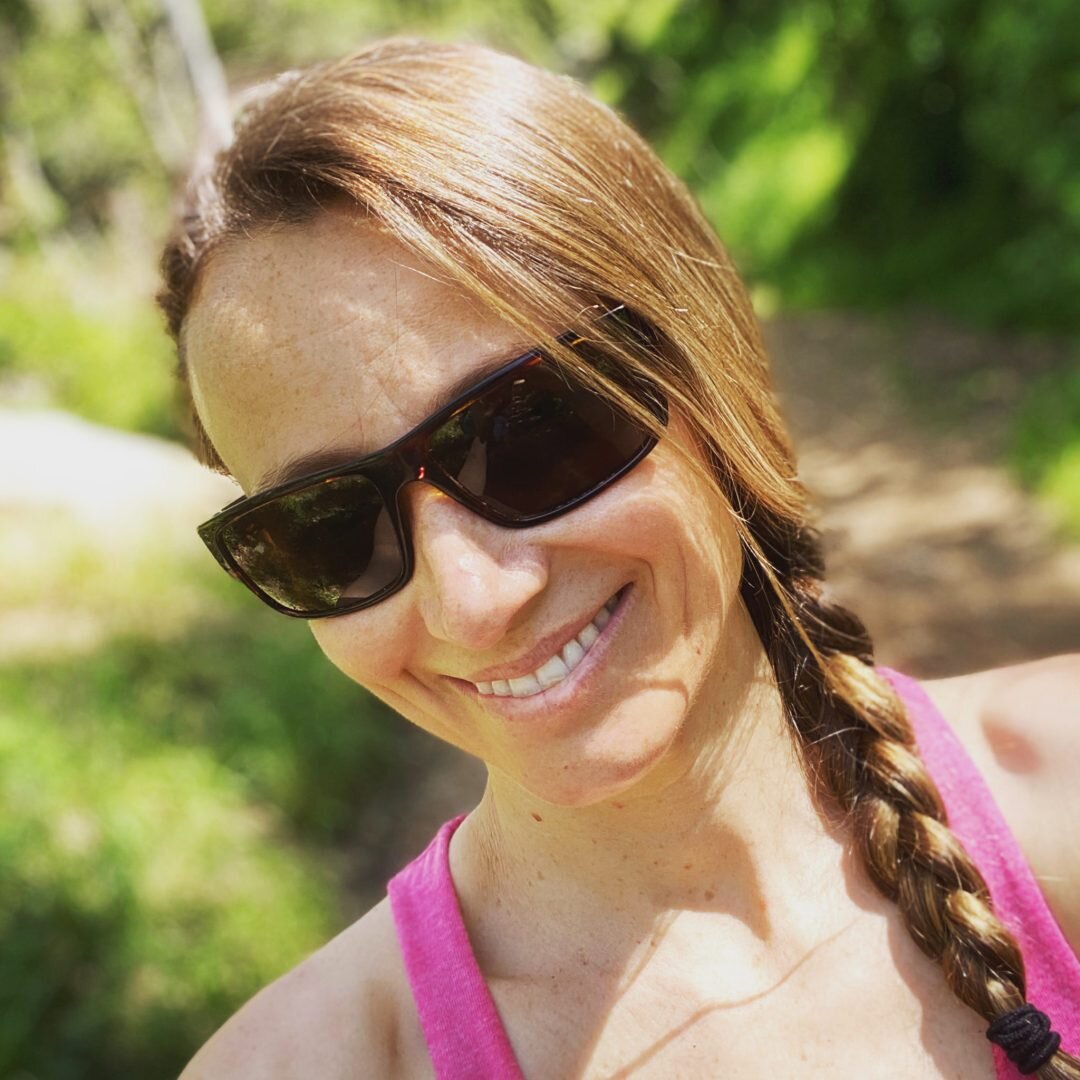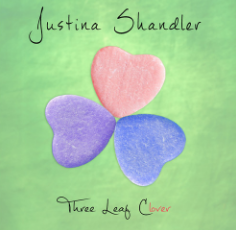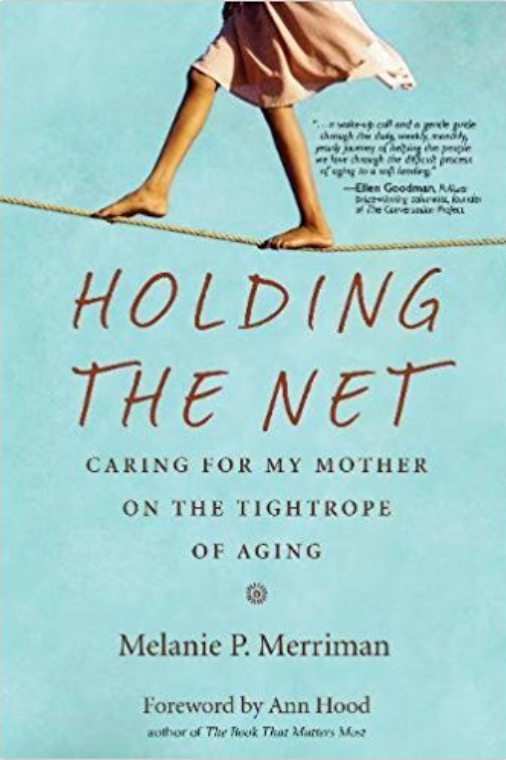Episode 114: Sometimes It's Better Said in a Song.
Today on our show, we’re talking about structure, voice, commitment, and especially happy endings. The story you’ll hear was written, read, and sung by Amber Petty. What makes this story so much fun? You know it when you hear it.
Amber Petty used to be an actor but now she writes and helps other writers get into freelance writing. In her acting days, she performed at the Upright Citizens Brigade Theater and did over 500 shows of the Off-Broadway 50 Shades! The Musical. She's written for The New York Times, Thrillist, Greatist, Bustle, MTV, IFC, and Snooki's blog. Now, she teaches Freelance Writing for Creatives and works on very important projects like her book of short stories inspired by the musical Cats.
Episode 113: I Was the Real Life’s Queen’s Gambit
Today on our show, we’re talking about how to frame a story. Not all publications are looking for the same thing. Actually, all pubs are different. On Writing Class Radio, we look for a change in the narrator or a discovery by the narrator. We want the narrator to reveal something big and vulnerable and important. We want something dramatic to happen. And then we want the narrator to make meaning of what happened.
The story we bring you today doesn’t exactly fit into what we call a story, but it is so compelling and beautifully written. AND it was published despite it not fitting into our usual box.
Sari Caine is a native New Yorker who has been living a nomadic lifestyle since the start of the pandemic. Her story was originally published in The Independent and is an excerpt from her memoir in progress called Check Mates.
Episode 112: Voice Isn’t Everything, Is It?
Today on our show, we’re talking about voice in a new way. We always say, write like you speak. That’s one of the most important writing tenets, because if you write like you speak, you’re writing in the most truthful way. If you curse, curse. If you don’t speak in fancy prose, don’t write fancy prose.
To hear more about voice, listen to Episode 43: Voices in Your Head, and Episode 44: Voices Carry.
On today's episode, we ask the question, What if your physical voice says something about you you don’t want it to say? Also, does your physical voice translate onto the page?
You'll hear an essay by Mark Jason Williams. His story is called You’d Be Cuter with a Deeper Voice. A version of this story was previously published in Out Magazine.
Mark Jason Williams is an award-winning playwright, essayist, and traveloguer who writes for The Washington Post, HuffPost, Thrillist, and more. He is currently working on an essay collection. You can find Mark on his website, Twitter, and Facebook.
Episode 111: It’s a Matter of Time
Today on our show, we are featuring an essay by former student Sharon Rothberg. Sharon uses a philosophical concept to work out her feelings about the death of her daughter-in-law. Sharon's use of time and all lingo related to time is masterful. The story structure is also exceptional as is the balanced use of humor and vulnerability.
This story really shows how writing helps people figure out things we can’t really understand.
Sharon Rothberg lives in Miami, Florida with her husband of 57 years. She was an English major at Tulane University and taught seventh grade English. She loves to read novels, memoirs, and biographies. Sharon came to class on a whim (and because Andrea convinced her), having nothing in particular she wanted to write about. The class pulled up the grief and trauma she’d been holding inside. Writing the story of her daughter-in-law helped Sharon release her feelings and clarify her understanding of time (that we have) on this planet.
Episode 110: How to Write About Death: Use an Obsession.
Originally aired March 3, 2020
Today on our show, we take a look at bringing an obsession into a story. It’s possible to go deep into an obsession that has almost nothing to do with the story you are trying to tell without being distracting. That obsession can deepen the meaning of the story by giving us a peek into you, the narrator.
Editors get a lot of stories about cancer, dead dogs, aging parents, etc. We’re not saying, stay away from these topics. We’re saying, writing about an obsession is a way to write about death (or any of these topics) in a new and interesting way.
The story you’ll hear is from Jackie Ashton. This story was previously published in the March 2019 issue of Real Simple.
We also talk about why it’s important to write and read stories about death, because hiding from feelings is never good. This story illustrates what someone who is going through a difficult time might need the most: friends who remind them of joy by experiencing it with them.
Jackie Ashton is a literary agent and seasoned media professional with over a decade of experience in writing, editing, copywriting, and editorial direction. Her journalism and essays on health, lifestyle, and education—as well as parenting in the digital age—have appeared in publications like The New York Times, The Washington Post, and Salon, among other outlets.
Jackie is passionate about helping writers find their community and their voice. Join her weekly newsletter Writing Is a Team Sport—for weekly tips, inspiration, and insights from leading writers, editors and industry experts.
Episode 109: Show and Tell. Episode
Originally aired July 31, 2018
In this episode, we examine the popular writing tenet, show DON’T tell. We believe just showing is not only impossible, but detrimental to your story. Telling gives insight into what the narrator is thinking and feeling.
To test this theory, we asked our students to just SHOW. We gave the prompt: A fight and instructed them to go directly to scene without explaining. We wanted to see if show without tell would work. After ten minutes, the students were asked to continue where they left off but to move from the scene into exposition, to just TELL. They were instructed to explain what was going on in the story, give background, and tell what the narrator was thinking and feeling. What we found: It’s impossible to show without telling.
You will hear short prompt responses from student Misha Mehrel, who has read many stories on this podcast, Allison Langer, and Andrea Askowitz. Andrea’s piece called Spoiled Mom was developed out of this exercise and published in June 2018 in Mutha Magazine.
Episode 108: How to Write Your Story with Joyce Maynard.
Originally aired May 18, 2017
Today we’re bringing you a guest teacher, because we think it’s smart to get different perspectives.
Joyce Maynard is one of Andrea’s favorite teachers in the world. Joyce started writing when since she was 13.
Andrea asked Joyce to read and deconstruct her essay Letting it Fly, which was originally published in 1997 in the New York Times Lives Column.
In the interview, Joyce explains what goes into writing a great story and tells us her secrets to making a good essay great.
Joyce Maynard is the author of eighteen books, including the New York Times bestselling novel, Labor Day and To Die For (both adapted for film), Under the Influence and the memoirs, At Home in the World and The Best of Us.
Her latest novel, Count the Ways —the story of a marriage and a divorce, and the children who survived it—was published by William Morrow in June, 2021.
Episode 107: Can You Hear Me if I Can’t Hear You?
Originally aired April 20, 2017
This episode is about connecting through writing. It’s also about the job of storytellers to bring us into their world. Student Nilsa Rivera tells a story about her fear of isolation because she’s hard of hearing. This is especially true and important today, during covid, when people are wearing masks and reading lips is impossible.
Andrea relates to Nilsa in a very small way and emails her after class, which she immediately regrets doing. In class, students (and teacher) are only allowed to give feedback on the writing, not someone’s life because whether or not a reader or listener has had the exact same experience is irrelevant. When a story is well-told, anyone can relate to it.
You will hear how Nilsa felt about Andrea’s email and more about what it sounds like to be hard of hearing.
Nilsa Rivera writes about gender and diversity issues. She’s the Non-Fiction Editor of Doubleback Review. Her work appears in Huffington Post, 50 GS Magazine, Six Hens Literary Journal, Assay: A Journal of Nonfiction Studies, Selkie Literary Magazine, and Writing Class Radio. Her work has appeared in Turning Dark into Light: A Mental Health Anthology and Home in Florida: Latinx Writers and The Literature of Uprootedness. She's currently an MFA Nonfiction candidate at Vermont College of Fine Art and lives in Riverview, Florida. She can be found at @nilsawrites and Nilsa Rivera on FB
Episode 106: How Do You Know if Your Story Sucks?
Host Allison Langer tells a story about her post cancer hair. Allison’s story was rejected by The Washington Post. Should Allison give up and write something new? Or should she continue to send her story to other publications?
Most often, even expertly-written stories get rejected because they’re just not a perfect fit for a particular publication at a particular time. But, how do you know if your story just sucks?
Had Allison listened to Andrea’s edits, would she have gotten published? Or is it the topic of cancer that did her in?
You’ll hear why a new twist on an overly-written-about subject (like cancer) may help you get published. You’ll also hear one of author Sue Shapiro’s secrets to getting published.
Episode 105: Teach Us Something We Don’t Know
This episode is about teaching the reader/listener something they don’t know anything about. Teaching can be done in two ways. One, by taking the reader into a world foreign to most people and two, by relaying information that’s rarely discussed and possibly unknown to the average person.
In the story we bring you today, listener and student Danielle Huggins does both. Danielle has Bipolar Disorder and takes us inside her mind while she’s depressed. She also teaches us about Electro Convulsive Therapy (ECT). She gives us history and explains the medical process and implications. This is not a reported essay, instead, Danielle relays what she learns from her doctor and her experience.
This essay will also be published in the Washington Post, July 20, 2021.
Danielle Huggins is a former middle school math teacher with a Masters Degree in Literacy. She is currently a stay-at-home mom, a student of Writing Class Radio and an avid kickboxer. Danielle has a Facebook page called My Life As a Bipolar Mom. She lives in New Jersey with her husband of 15 years, 14 year old daughter and 20 year old stepson.
Episode 104: Sleep Left Me for a Younger Woman
This episode is about commitment. Not commitment to love, exactly, but commitment to a concept. Listener Lucie Frost writes a satirical essay where sleep is her lover. She never slips from the concept. Humor writing requires committing to an idea and pushing that idea as far as you can go.
Lucie Frost is a humor and satire writer in San Antonio, Texas. She recently retired from a lifetime as a human resources/employment lawyer. This story was originally published in Slackjaw. Her work has also been published in Next Tribe, Little Old Lady Comedy, The Haven, Lady Pieces, Points in Case, The Belladonna, and Robot Butt.
You can find her on all social media platforms @lucieHfrost
Episode 103: Is it Ok to Write the Same Story Over and Over?
On this episode, we bring you a story that the narrator has returned to and will probably return to all her life. Everyone has their themes and it’s okay to return to them at different points in our lives.
TRIGGER WARNING…The story you will hear on this episode documents the loss of a child. If this is a sensitive issue for you, please listen to another episode.
Our student and listener Emily Henderson writes a beautiful story about the loss of her son to brain cancer. In this essay, she uses her husband to tell her story from a different angle. Her husband has big enough shoulders to carry the weight of their grief. This story is in honor of all the fathers out there.
Emily Henderson is a stay-at-home mom, volunteer, freelance writer, and student at Writing Class Radio. Her essays have appeared in Scary Mommy, The Santa Barbara Independent, and Love What Matters. She is currently attempting to run every single street in Santa Barbara, CA. Emily writes a blog called www.myjustrightlife.com You can find her on Instagram @myjustrightlife
Episode 102: A Boyhood Brush with Breast Cancer
On this episode, we bring you a story that is not one you hear too often but addresses a very serious situation: breast cancer in men. Kevin Wood shares his essay, A Boyhood Brush with Breast Cancer. This essay was previously published on The Good Men Project.
We sat on this story for a few years not because it wasn’t expertly written, but because it lacked an important detail we felt was left out. You'll hear us discuss what happens when a key element seems to be left out of a story.
Kevin Wood (kevinewood.me) is a freelance editor, writer and writing coach based in Barcelona. He serves as a contributing editor for The Good Men Project, with a focus on social justice and queer issues. His writing has appeared in The Washington Post, Witness Magazine, Fast Company, Huffington Post, Litro Magazine, The Chicago Tribune, and Thought Catalog, among others. Twitter (@simplifythenow) + Instagram (@simplify.the.now)
Episode 101: I Own Seven Vibrators and I Still Don’t Know What to Say at a Cocktail Party
This episode is about writing like you speak, which is the best way to tell a true, authentic story. Andrea and Allison discuss why bringing your voice into a written essay makes the story so much better.
You will hear an essay by Anthea Rowan, a writer and listener from Tanzania, Africa. Anthea’s story is about social anxiety. She uses her brilliant British vernacular and charms the listener. Allison and Andrea discuss the writing after the story, why writing class has fucked them up for cocktail talk, and their own experiences with social anxiety.
Anthea Rowan grew up in Tanzania, Africa. She has three kids and says her writing was born by accident. Crap at most things and feeling empty nestish, a friend suggested she write for a local travel mag. A year later she was published in The Times of London. Rowan says writing saved her life after years of isolation in the African bush. She is working on her first creative non-fiction book. For more Anthea, go to @anthea_rowan on Instagram, visit her website or read her blog.
Episode 100: Happy F*ing Mother’s Day
This episode features an extreme mother story by Diana Kupershmit who is honest and vulnerable. Diana tells the truth about a very tough decision she and her husband made when their daughter Emma was born with a severe disability. Diana reads her story and then Andrea and Allison discuss the brilliant writing and why is it important to be gut wrenchingly honest.
Photos shared by the Kupershmit family
























